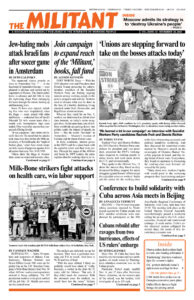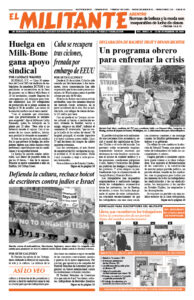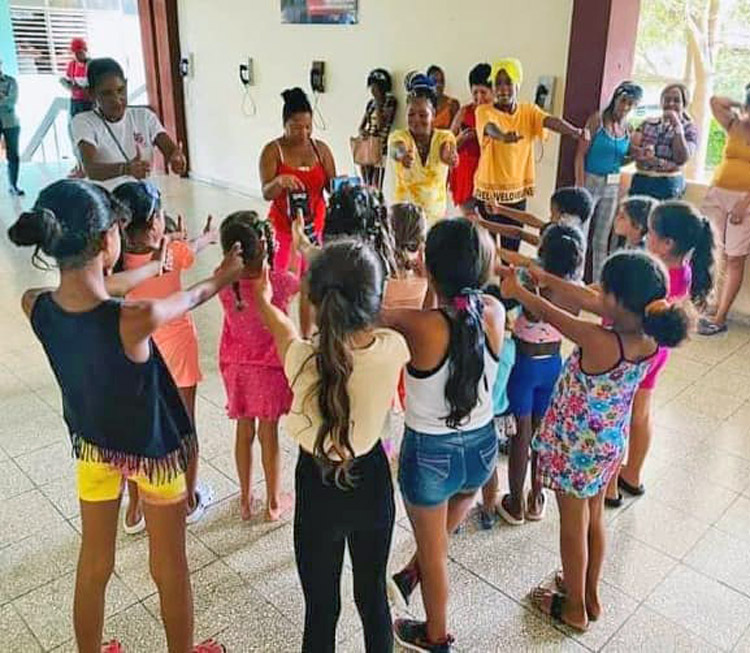Since Oct. 20 Cuba has been battered by two hurricanes and two earthquakes, all made worse by Washington’s relentless economic war on the Cuban people.
Hurricane Rafael made landfall Nov. 6, just 17 days after Hurricane Oscar. Artemisa, on the western part of the island, was hit hardest, with wind gusts of up to 125 mph.
There is hardly “a park, a cultural center, a neighborhood or state institution, a home of a relative, neighbor or friend, nor a tree,” reported the weekly El Artemiseño, “that was untouched by the wind.” The main hospital, the sports stadium and the theater were all heavily damaged. Some 37,000 acres of planted fields were wiped out.
The two earthquakes, the strongest at 6.8 magnitude, struck the eastern coast Nov. 10, damaging 2,000 homes and injuring seven people.
But unlike in the U.S., where the capitalist government leaves working people to fend for themselves, in Cuba the government leads civil defense committees, mass organizations and the army to try to make sure no one is left on their own when natural disasters strike — a conquest of Cuba’s socialist revolution.
As Rafael approached, local civil defense committee members went door to door to make sure residents were prepared.
The government sent buses to evacuate people from the most exposed areas. Some 99,000 people were evacuated in Havana to the homes of families and friends, as well as to 147 temporary shelters in schools and other public buildings.
Because of the more than 60-year-long U.S. embargo — which prevents Cuba from purchasing oil it needs along with spare parts and other necessities — preparing for a storm, weathering it and rebuilding afterward is even more challenging.
Yet despite the shortages, the government and mass organizations work to assure that those in shelters have food, medical care and staff that organizes activities for the children.
Sometimes they face frustrating challenges. At one refuge in Alquízar, evacuees complained about the quality of the food, El Artemiseño reported. “We know what it costs the country to give us this attention,” Mabel García said. “That’s why it’s a shame that resources are spent that don’t meet the intended goal of providing nourishment.”
“These are complex times,” replied Larexey Batista, first secretary of the Communist Party there, asking for patience. He noted that “today the food arrived on time and was better prepared.”
Rafael hit just two weeks after a three-day island-wide blackout that was caused by holdups in fuel shipments, largely because of U.S. sanctions. Rafael knocked the power out again.
As soon as the storm ended, volunteer linesmen from around the island — “moved by solidarity which runs through their veins” in the words of the weekly Ahora — headed to Artemisa and Mayabeque to repair downed lines. Volunteers organized by trade unions worked side by side with soldiers to clear roads.
While power has been restored to most of the country, it’s taking longer in Artemisa. As of Nov. 11 only 2% of the province had power.
From around the country Cubans are sending donations of food and clothing to the hardest hit areas. Aid has also been sent from Mexico, Colombia, Bolivia, Venezuela, Russia, China and solidarity groups in the U.S. to help in the rebuilding, including thousands of stoves, mattresses and zinc sheets for roofing.
The biggest victory, Cuban President Miguel Díaz-Canel said after Rafael passed, was that not one person lost their lives due to the storm.


